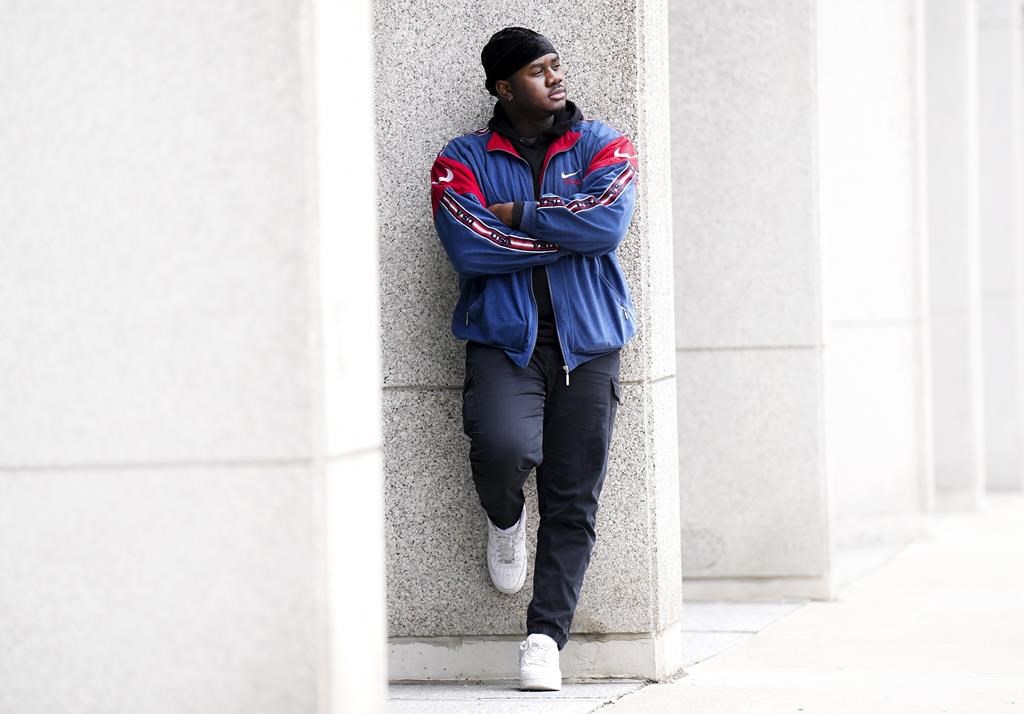TORONTO — “Are you OK?” the TikTok commenter asked. “Like really?”
It was a reasonable question. Since joining TikTok in the early days of the COVID-19 crisis, Toronto hip-hop artist Akintoye Asalu has built a name for himself on TikTok with his candid songs about dealing with anxiety and depression.
When Asalu saw this expression of concern in his comments, he heard the opening lines of a song.
“I’m fine,” he rapped in a TikTok. “If I’mma be sad, I’mma do it with pizzazz.”
The resulting anthem of upbeat ennui, “Pizzazz,” has taken the 22-year-old’s music career to new heights as TikTok users have put their own spin on the sound in more than 300,000 short videos.
Asalu, who goes by his first name as a musician, said the song’s viral success shows how social media has levelled the relationship between artist and audience to allow both sides to connect over shared struggles, and fuel one another’s creativity.
“I felt like I was born into the luckiest generation I could have been born into as far as hip hop goes, because nobody would have been trying to hear no bars about sadness, and anxiety and all these different types of things 10, 15 years ago,” said Asalu, who has 2.5 million followers on TikTok under the handle @yeahitsak.
“I’m no longer able to run from these things that I’ve actively tried to run from over the course of my entire life. I also got lucky in the sense that when I was posting the videos, I got some validation, because other people are like, oh my god, I feel the exact same thing.”
“Pizzazz,” which has been streamed roughly two million times on Spotify, is the latest in hit in Asalu’s catalogue of catchy tunes that draw from his mental health struggles.
While some styles of hip-hop tout braggadocio, Asalu opts for relatability, finding inspiration in such day-to-day trials as the dread that comes with the growing debt of unacknowledged text messages in “Panic Attack.”
“I feel like I’m contributing a sense of transparency that a lot of people don’t necessarily let off,” he said. “I feel like I’m building a community around … being comfortable with all the things that come with being a human, the ups and the downs.”
This embrace of the full emotional spectrum is core to what it means to be “sad with pizzazz,” said Asalu. It’s an acknowledgment that sadness is an inevitable part of life, but it’s possible to find strength in the pain, he said.
He said the particular resonance of this sentiment during the COVID-19 crisis may have contributed to the success of “Pizzazz,” particularly for the generation of young people who have spent some of their formative years in lockdown.
“I’m stuck in the house. I have to sit with the sadness that I have,” he said. “I’m going to just do it the best way I know how to do it. I feel like ‘Pizzazz’ is the perfect representation of that.”
Resilience is recurring theme in many of the TikTok videos set to “Pizzazz,” with some users offering their own sources of “pizzazz” ranging from anime to garlic bread.
Other videos riff on the lyrics to make light of misfortune.
“(If) I’m going to be sad, I’m going to do it with his other girlfriends,” one wry caption reads, as a trio of women dance together to show their mutual ex what he’s missing.
In another video, a young TikToker lip syncs to the song that “describes my life perfectly right now” as she cracks jokes about her terminal cancer diagnosis to the horror of her friends and family.
Asalu said scrolling through the wide-ranging interpretations of his song buoyed him through the successes and self-doubts that come with finding a bigger stage, including a performance at Jurassic Park before a Raptors game last month.
“There’s a lot of people that — and I’m kind of in this boat too — try to mask the sadness behind the pizzazz, so to speak. And these people were able to come out,” said Asalu.
“It felt like this thing that was kind of therapeutic for me, is now also being flipped into a therapeutic thing for everybody else.”
This report by The Canadian Press was first published May 5, 2022.



